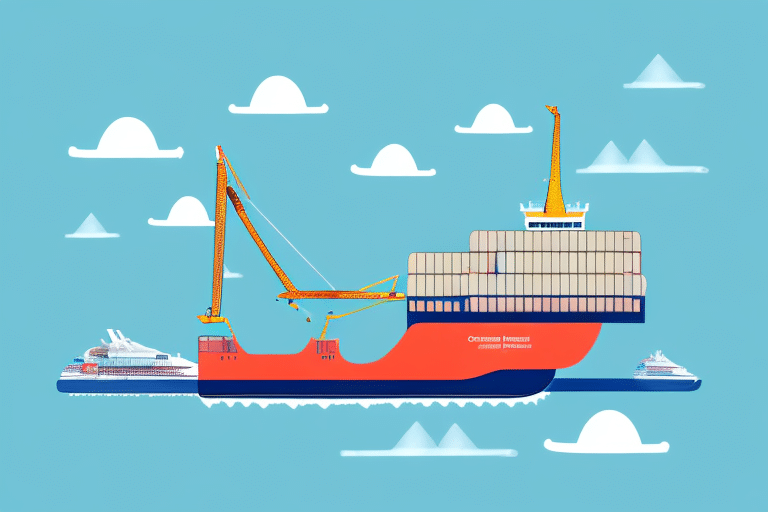Understanding FOB Destination Shipping Terms
Freight On Board (FOB) destination is a crucial shipping term in international trade that outlines the responsibilities and liabilities of the buyer and seller during the transportation of goods. Under FOB destination terms, the seller retains ownership and bears all risks and costs associated with the goods until they reach the buyer's specified location. This term helps delineate clear responsibilities, minimizing disputes and ensuring a smoother transaction process.
FOB Destination vs. FOB Origin
It's important to distinguish between FOB destination and FOB origin. While FOB destination means the seller is responsible until the goods arrive at the buyer’s location, FOB origin transfers responsibility to the buyer as soon as the goods are shipped. This distinction affects who bears the risk of loss or damage during transit and can influence the choice of shipping terms based on the parties' preferences and logistical considerations.
Benefits of FOB Destination for Importers and Exporters
FOB destination offers several advantages for both importers and exporters:
- Risk Management: Importers are protected from potential losses or damages during transit since the seller retains responsibility until delivery.
- Control Over Shipping: Exporters can manage the shipping process more effectively, ensuring proper handling and timely delivery of goods.
- Cost Efficiency: By consolidating shipping responsibilities, exporters can negotiate better rates with carriers, potentially lowering overall transportation costs.
- Enhanced Trust: Clear delineation of responsibilities fosters stronger business relationships and trust between trading partners.
According to the U.S. Small Business Administration, understanding and appropriately applying FOB terms can significantly impact the financial and operational aspects of international trade.
Key Considerations When Using FOB Destination
When opting for FOB destination terms, businesses should consider the following factors to ensure a seamless transaction:
- Clear Agreements: Clearly specify the delivery location and responsibilities in the contract to avoid misunderstandings.
- Insurance Coverage: While sellers are responsible until delivery, buyers should consider additional insurance to cover any unforeseen issues during transit.
- Transportation Costs: Understand and account for all transportation-related expenses, including freight, insurance, and handling fees.
- Delivery Timelines: Establish realistic delivery schedules and ensure coordination between all parties to meet agreed-upon deadlines.
Documentation and Legal Considerations
Ensure all necessary shipping documents are accurately prepared and maintained. This includes bills of lading, invoices, and any required customs documentation. Proper documentation facilitates smoother customs clearance and reduces the risk of delays.
Common Challenges with FOB Destination Shipping
Despite its benefits, FOB destination shipping can present several challenges:
- Communication Gaps: Lack of effective communication between buyer and seller can lead to misunderstandings and disputes.
- Shipping Delays: Unforeseen delays in transit can disrupt supply chains and affect business operations.
- Damage or Loss: While the seller is responsible until delivery, damages can still occur, necessitating prompt resolution and insurance claims.
Addressing these challenges requires proactive measures, such as maintaining open communication channels, choosing reliable carriers, and having contingency plans in place.
Best Practices for Managing FOB Destination Shipments
To effectively manage FOB destination shipments, businesses should adopt the following best practices:
- Select Reliable Carriers: Partner with reputable shipping companies that have a track record of on-time deliveries and careful handling of goods.
- Implement Tracking Systems: Utilize shipment tracking technologies to monitor the progress of deliveries in real-time, ensuring timely interventions if issues arise.
- Ensure Proper Packaging: Invest in high-quality packaging to protect goods during transit, reducing the risk of damage.
- Maintain Comprehensive Documentation: Keep detailed records of all shipping documents to facilitate smooth customs clearance and resolve any disputes efficiently.
Leveraging Technology for Improved Shipping Management
Adopting advanced technologies such as Blockchain for secure data sharing and IoT devices for real-time tracking can enhance the management of FOB destination shipments, providing greater transparency and efficiency.
Future Trends in FOB Destination Shipping
The logistics industry is continually evolving, and several trends are shaping the future of FOB destination shipping:
- Autonomous Vehicles and Drones: These technologies promise faster delivery times, increased efficiency, and reduced operational costs.
- Blockchain Integration: Enhancing transparency and security in shipment tracking and documentation processes.
- Sustainable Logistics: Increasing emphasis on eco-friendly shipping practices to reduce the environmental impact of transportation.
- AI and Machine Learning: Utilizing predictive analytics to anticipate and mitigate potential shipping disruptions.
Embracing these trends can provide businesses with a competitive edge, ensuring they remain adaptable and efficient in a rapidly changing market landscape.
Conclusion
FOB destination is a pivotal shipping term that defines the distribution of responsibilities and risks between buyers and sellers in international trade. By understanding its nuances, adopting best practices, and staying abreast of emerging trends, businesses can optimize their logistics operations, mitigate risks, and build stronger trade relationships. Proper implementation of FOB destination terms not only enhances operational efficiency but also contributes to long-term business success in the competitive global market.








